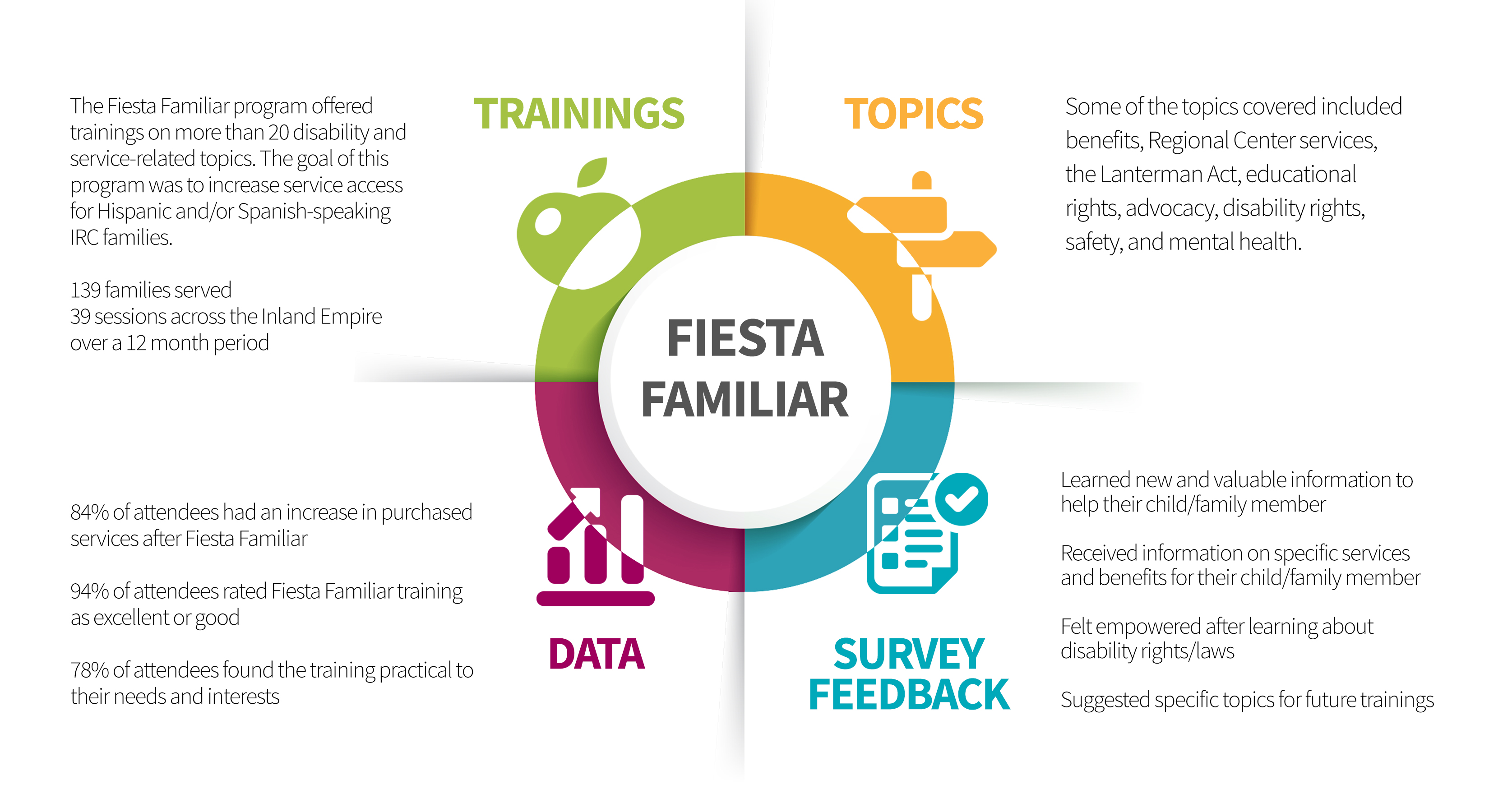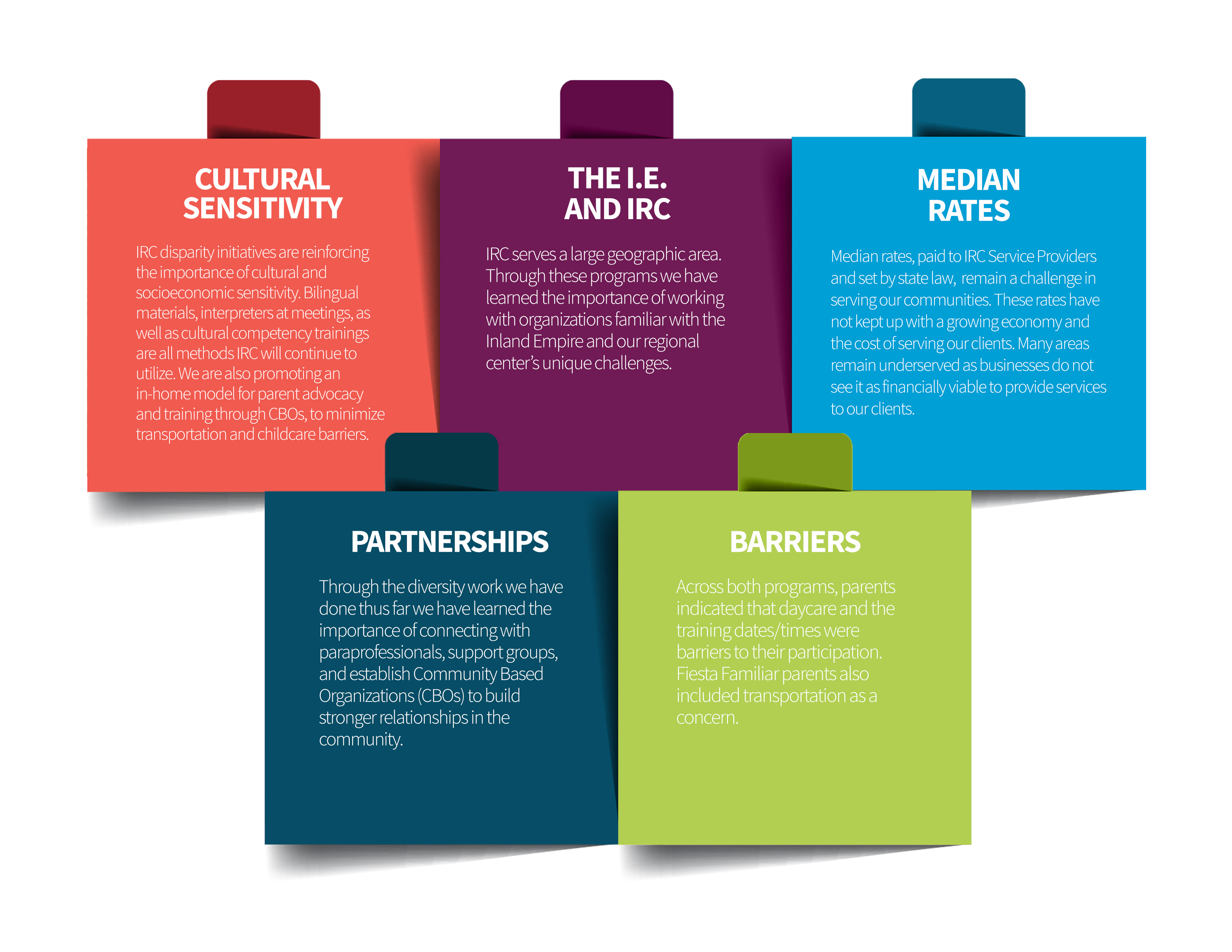Every year at Inland Regional Center (IRC) we collect data on the services and supports we are providing to our clients. The services and supports we pay for on behalf of our clients are referred to as purchased services and the data we collect is called Purchase of Service (POS data).
Purchase of Service data is vital to understanding our clients and our communities. Data is collected based on various categories including age, ethnicity, diagnosis, primary language, and residence-type. Analysis of this data can help us identify groups who are underrepresented and under-served. Currently, IRC has three main groups who fall into the category of “underrepresented” groups:
- Clients with Autism
- Clients those who speak Spanish as a primary language
- Clients of Hispanic ethnicity
These groups have a high percentage of IRC clients who are not receiving a purchased service.
In 2018, IRC partnered with community partner Fiesta Educativa to offer two programs to address these disparities: Fiesta Familiar and APEP. Below you will find infographics that explain the two programs, successes, challenges, and the impact they had on our clients and families.
Share this Post





